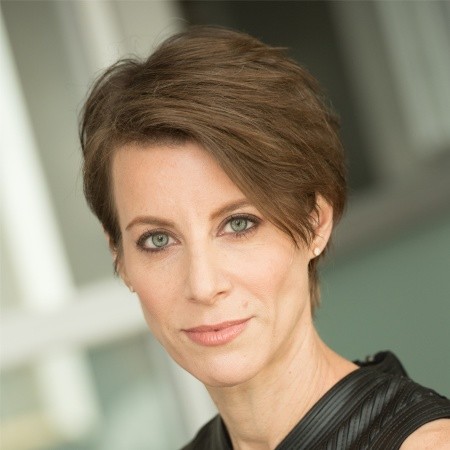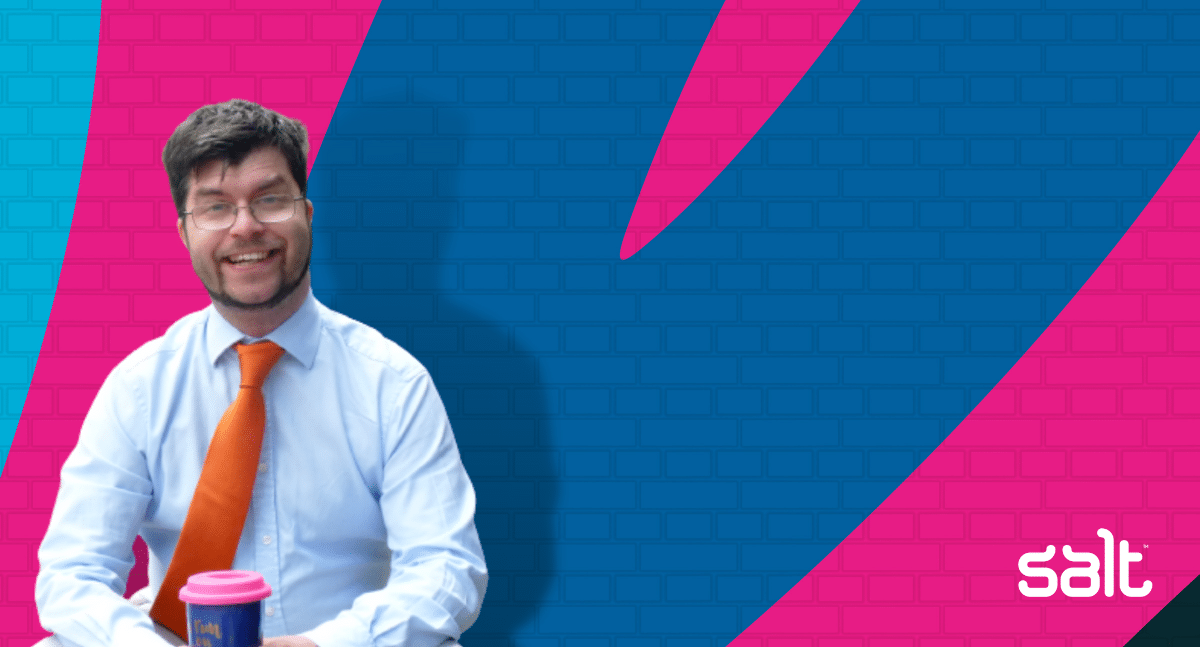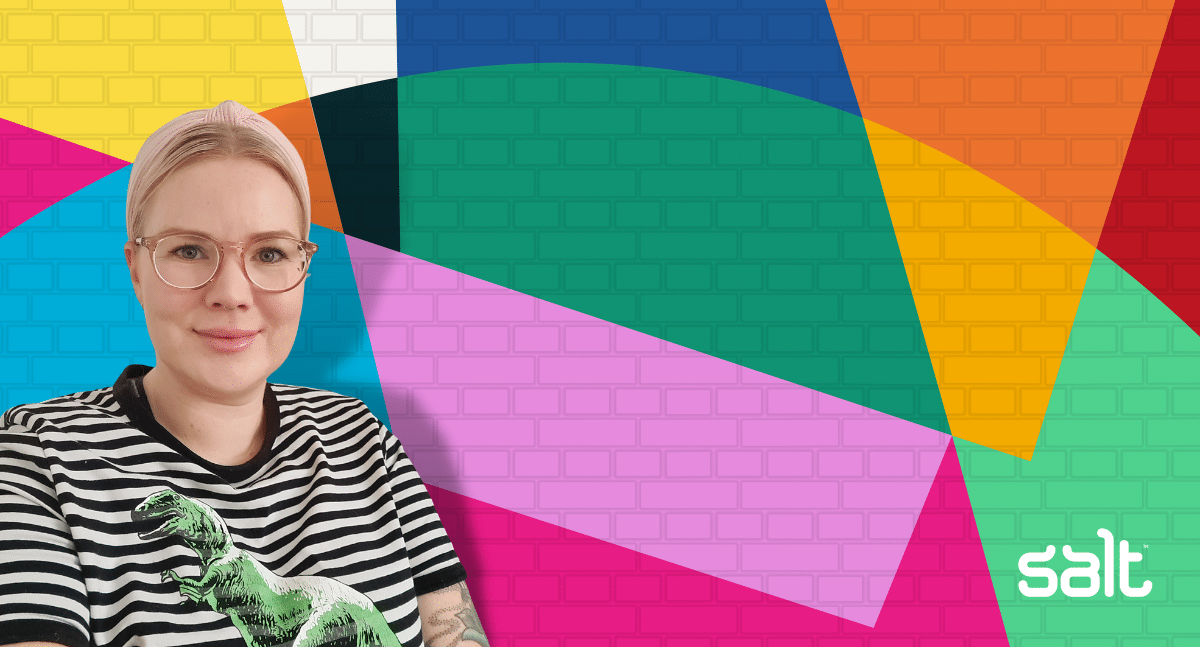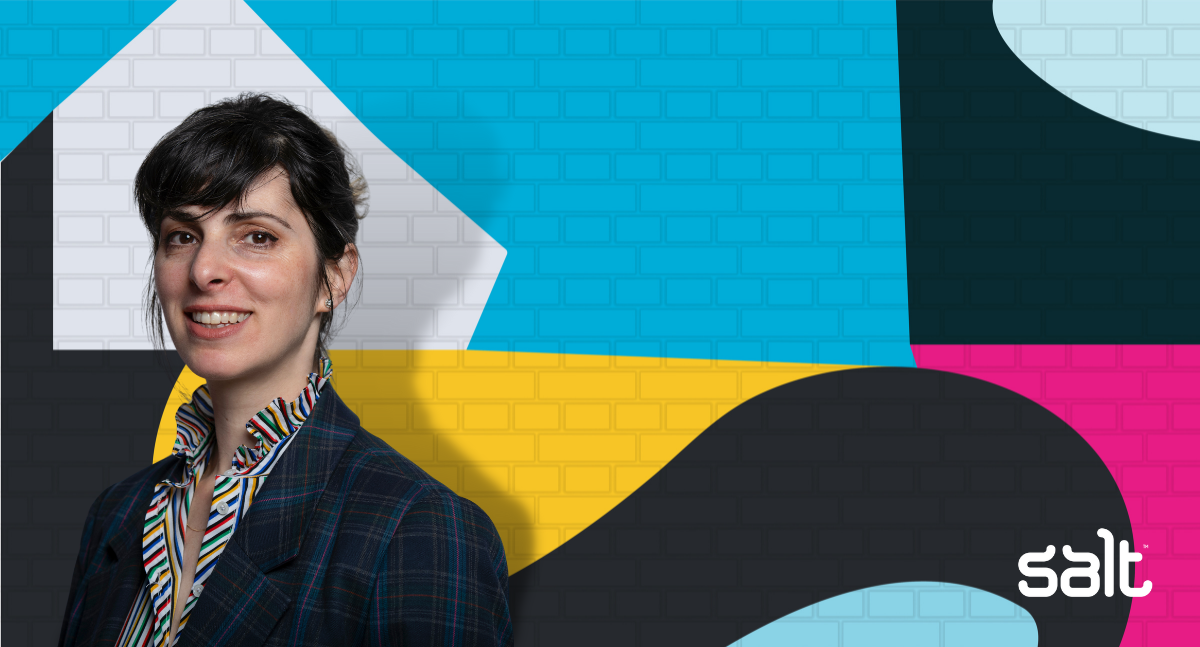
We at Salt, a global, award-winning digital recruitment agency are excited to launch our Females of FinTech interview series. As the world of Financial Services and Technology have been typically male-dominated, we want to share this interview series with the aim to facilitate conversations specifically around females in FinTech as the market grows.
To kick this series off we have Jody Perla, the Managing Director of Global Banking & Payment Infrastructure at Payoneer based in New York share her experiences and advice.
What is your current role and the most exciting part of your work?
Payoneer is a global payment platform enabling businesses of any size to send and receive payments across borders. I’m responsible for building out our payment network, sourcing and managing our relationships with banks and payment providers worldwide. I love the global nature of what I do. It brings me to new places, allows me to meet new and interesting people from different countries and cultures. And I’m constantly challenged and learning new things.
It’s incredibly exciting to be living the global geopolitical landscape in real time. Our business and my day are impacted by things like Brexit, tariffs on Chinese imports, the conflict with Russia in Ukraine, turmoil in Argentina and currency fluctuations and more. It’s rewarding to be so connected to what’s happening daily all over the world. And because we enable small businesses globally, I get to see real people build thriving businesses locally in their home countries. It’s a beautiful thing to be able to help individuals stay with their families and succeed locally.
What has been your most career-defining moment that you are proud of?
I worked on a very large deal that took over 3 years to close. It was transformational for me personally as well as for our company. It required stamina, perseverance, as well as a whole lot of nerve. Not only did the client need to make major changes to their systems but we had to lobby their banks to change internal policies as well. It was a major accomplishment financially for all the parties, but that also showed me what I was capable of.
As a manager, one of the best moments for me was when an employee of mine wrote me a heartfelt thank you letter, telling me how I changed their life, helped them get out of debt, get financially stable and how grateful they were that I gave them a chance and helped shape their career. Personal success is one thing, but seeing and hearing the impact in other people’s lives was incredibly rewarding. I still have the thank you note in my desk drawer.
What do you think we should be doing more of to encourage more girls to consider a career in tech?
The advice I give all women in the early stages of their careers is to try new things and to be open to new experiences. As someone who didn’t know exactly what I wanted to do when I grew up, it was really helpful and liberating to try unusual jobs and find out what I didn’t like doing, rather than feeling compelled to know exactly what and where I wanted to be. Sometimes it’s helpful to be able to sample a broad palette, and then eliminate what doesn’t taste or feel right.
What challenges have you faced in the workplace, especially your experience in male-dominated environments?
In one of my early (short term) jobs I worked for a man who had a small import business. He felt women should make coffee, take notes and stay silent. His wife, who also worked in the office, was “allowed” to open the mail. Needless to say, I didn’t last long at that job.
On the other hand, what really showed me the way and what impacted me the most was working for a super successful woman. She was my first professional role model and the example of how to be assertive, run and own a business, command respect, own a room, run a meeting, write an email – and how to negotiate. From then on, I’ve been fortunate to work for people and organizations where women play a pivotal role.
In fact, at Payoneer 50% of our global team is women.
In your opinion, what is the biggest obstacle to women’s career progression?
Women are typically more afraid to commit to bigger roles, spending a lot of time thinking about all the “what-ifs” and who they are disappointing rather than focusing on new opportunities and how to make it all work. I recently read a great blog post on the Huffington Post called “The Default Parent”
As a full time working mom to 3 kids, I really related to this – the never-ending pull from our personal lives whether the guilt about not being around enough for the family, being a good spouse, partner, mother, daughter and on the flip side, the worry that you’re not a dedicated employee, not responding fast enough or available enough compared to others. In today’s business world, and with the accessibility that the internet brings, most jobs require non-stop, on-demand attention. Working in a global environment makes that even more challenging, managing multiple time zones. When you need to have Hong Kong, New York, Tel Aviv and Brazil on the phone, someone is working off hours.
One way to solve that is to work in an environment that values results and provides people with the opportunity to work and succeed on terms that are both good for the individual and good for the organization. I work from home many days and other days I’m on the road for the entire week. I am empowered to do what I need to do and make the choices I make on a daily basis because I have earned the trust and respect of my peers and colleagues and because I get the job done and deliver results.
Who has been your biggest advocate/mentor in your career and why?
Professionally – Yuval Tal, founder of Payoneer and of Borderfree (now Pitney Bowes). He hired me with no relevant industry experience (just chutzpah) and gave me a chance, putting me front and center in meetings and relationships around the world. And his can-do attitude of “you can do anything, ask for anything” really helped propel my career to another level. He included me in meetings from fundraising to client-development to technology, exposing me to so many elements of the business that I wouldn’t have had access to on my own. He also showed me how to make sure to always have fun where you go, and to find the time to appreciate new places and experience new things.
Personally – my husband. He is a smart and savvy businessman who has built his own successful businesses and been part of other major corporations. We consult each other, bounce ideas off each other and support each other – and sometimes edit each other. We are constantly learning from each other. He really is great – except for the time he synced his personal calendar with his company’s global calendar and 500 people found out I was pregnant with our first child because my first ultrasound appointment was on his calendar!
As an employer what would you recommend to other companies regarding infrastructure to have in place to develop the best talent?
I think it’s less about infrastructure than culture. The two ways to learn are by listening/watching others, or by doing. Too many times we either micromanage or don’t give people the exposure to learn by including them in meetings or conference calls. I try to share as much information as possible and try to include people in meetings or calls, even when it isn’t obvious what contribution a person can make on call or in a meeting. My job is easier when I have strong and capable people to work with.
In a management position, how have you found it best to promote and nurture women’s careers?
I actually try to promote the best candidate, not necessarily women and don’t feel I treat women differently in terms of nurturing. It’s more about sharing info and bringing people into the fold. But I try to develop personal relationships with the women I work with, both senior and junior, so they can learn from me and vice-versa.
From a hiring perspective, while establishing quotas may not be ideal, it is a way to change the culture of organization. So many times, people feel most comfortable hiring those that are just like them. Having diversity in an organization leads to better business, particularly when you are trying to be customer focused. So many of our clients today are women and women-owned businesses and having a wide range of experiences internally ultimately translates to be a better customer experience.
I’m also proud to work for a company like Payoneer, where more than 45% of the managers are women and whose largest office is in Israel, a country that has both specific laws to address and combat discrimination against women, as well as mandatory representation of women on company boards of directors.
What are some of the best and worst workplace initiatives you have seen/heard of to help promote diversity?
A really bad one: a large firm tried to highlight its women’s initiatives by profiling and widely publicizing the men at the firm that had helped women advance. It came off as patronizing, as if the only way women could advance was if men allowed it and helped.
Who is your modern-day hero?
My grandmother is 93 years old. She worked for over 50 years at the same company, retiring just a few years ago. Even in her 80s, she would take 3 modes of transportation to get to her office always on time and professional. Trusted, reliable, kind, optimistic and assertive – she always has time for everyone and everything. Working full time, in a time when it wasn’t fashionable for women to do this, she was (and remains) a confident, strong and independent woman, who was a devoted wife, mother, grandmother and great grandmother. She is always thinking of others, asking what she can do to help. She is a truly great role model who has shaped the lives of so many others in big ways and small.
On a more sombre – but no less real – note, I have a small cadre of heroes (some who we’ve lost): friends and family who battle illness – be it physical or mental. You can’t control everything in your life and I am amazed by the women in my life (of all ages) who fight the fight with humor, optimism, and courage.
Any reading/website you would recommend to stay updated?
In addition to specific industry news, I really need to stay on top of what’s happening in the world. I confess, I still like to read the printed newspaper. But a general rule, just read – read, read, read. It’s becoming a lost art. The written word remains our most important means of communication, especially in an age of e-mail and text communication. The more you read, the more you’ll know, the better you’ll write and the more you’ll learn.
What is your biggest stress reliever?
My friends. I have a few very close friends, and being able to share, commiserate, give and take advice from and with them is something that I cherish. That, and sitting by a nice beach with no wifi, reading a good book. I love reading, mainly historical fiction. Usually, it’s on a plane/business trip though, and not a beach!
Is there one piece of advice you wish somebody gave you at the beginning of your career?
Luck and timing really do play a role in many success stories. But it’s the hard work, the pounding of the pavement, never giving up and pushing through, that ultimately leads you to succeed. If you keep working hard and keep your eyes open, you’ll see when there’s a door in front of you that’s worth opening.
What job did you dream of when you were a kid – your Plan A career path?
Food & Beverage Manager at a hotel. Plan A went out the window after I spent a few dreary months working in reservations at a hotel, and I’ve been happily living Plan B (the right plan for me all along) ever since. There’s a lesson that – sometimes Plan A really isn’t the right plan at all.
Fun fact about you?
I am a fluent Hebrew speaker, which comes in handy working with our back office in Israel. Most people don’t know this and so it’s sometimes fun to listen in before they realize I know exactly what they’re saying. I usually let them know before it gets tricky!
About Jody Perla
While not a technologist or engineer by education, my twenty-plus year career has been related to facilitating cross border business. I went to Barnard college with an environmental science major and moved overseas after graduation. For the past 19 years, I’ve focused on the foreign exchange (FX) and online payment space. It’s been an incredible journey that I couldn’t have planned but that’s been interesting, fun and filled with learning and challenges. My general focus has always revolved around client and strategic partner development, most often from the very early stages of a company’s business. I found my way to technology companies initially by realizing that I could make a difference by applying technology to an import/export business that sold hardware goods like toolboxes and folding sawhorses to the DIY industry. I then switched over to VC backed companies, because I like being involved in start-ups where every person can make a meaningful impact.


